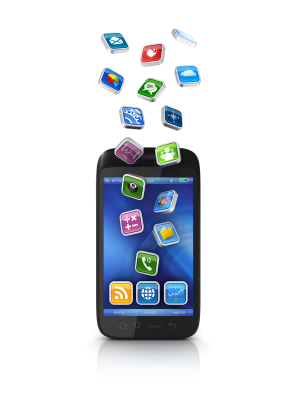
Here in the States we’ve seen people adopting smartphones for years now. I would think it would be tough to find someone who doesn’t know at least one person with a smartphone, if they don’t have one themselves already. These smartphones are powerful pieces of technology; they are basically computers in our pockets and a very effective communication tool.
Tablet PCs, however, have only really taken off in the last year or two. A lot of initial producers of tablets, especially Apple, have boasted that tablets will replace PCs. While that time is far off—if it does happen—there is news today that as a population, adults in the US have met and probably passed the halfway mark in terms of mobile connectivity. According to an AP Story released today covering a Pew Research poll, “half of all adult Americans now own either a tablet computer or a smartphone.”
About the Study
Previous polls about smartphone use have looked into the actual cell phone-using population as opposed to the entire population as a whole. In that demographic, smartphone use is above 50%. But this new survey includes tablets, which shows a strong understanding of how these devices are used by people. It also polled the entire country, not just cell phone owners. The focus is more on mobile internet devices. This is definitely a good thing, since I view smartphones as basically portable tablets at this point, with the extra cellular capabilities, of course.
PC Mag quotes one of the Pew employees, who states, “The evidence is also mounting that mobile devices are adding to, rather than replacing, how much news people consume.” I have to admit I was surprised to learn this.
We are often bombarded with opinions that smartphones and tablets distract us and take time away from doing beneficial things, like reading news and catching up on important events. To learn we’re actually adding time to these beneficial activities is refreshing.
Some things to think about for Businesses online
I think it’s safe to say this trend of smartphone and tablet ownership is going to increase over the years. Technology always gets cheaper, more readily available, and easier to use as time goes on. In fact, one recent study in Australia shows that 76% of Australians use smartphones and 38% own tablets! As users interact with the web in an increasingly different way than they do when on a PC, businesses are going to have to adapt or start thinking differently.
Facebook, despite its overwhelming user base and social power, is a prime example of one company that has struggled with what to do with its mobile users. How do you put an ad on a phone without being intrusive or annoying? How do you create revenue on these mobile platforms?
I definitely don’t think I have the answers to those questions; if I did I’d probably be fixing those problems and happily accepting a big thank-you check from Mark Zuckerberg. But I do know that this trend in mobile and tablet usage is only going to increase.
Why this matters moving forward
For big businesses like Facebook and Google, as the population shifts more and more towards mobile, they might need to start asking different questions. Instead of focusing on advertising to generate revenue, they might need think more creatively, at least to prepare in case PC use does begin to drop.
Facebook finally did take steps to address their mobile problems, creating their Facebook Gifts application that is fully scalable for tablets, PCs and mobile users. I think it’s very promising.
For other businesses, small and large alike, often times you have a place on the web to not only sell products if you can, but to build your brand, spread awareness and information about your products, and to communicate with customers. As more and more people spend more time—and even extra time—on the web, a presence on the internet is going to be increasingly more valuable to any business.
How do you think businesses and services will adapt and change to a population increasingly adopting mobile and tablet browsing?